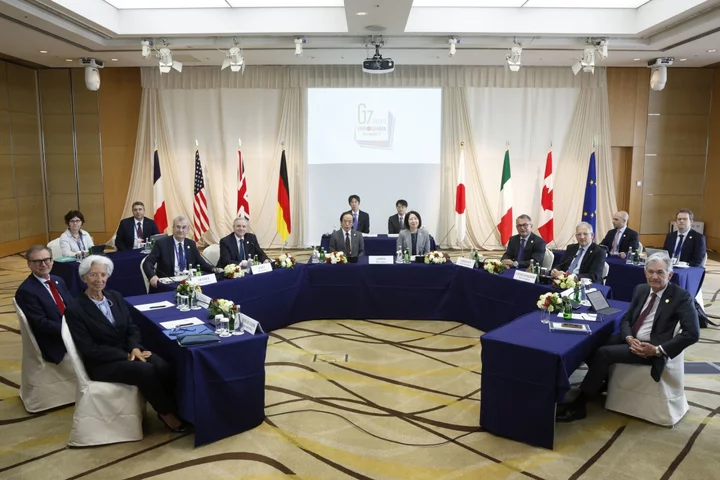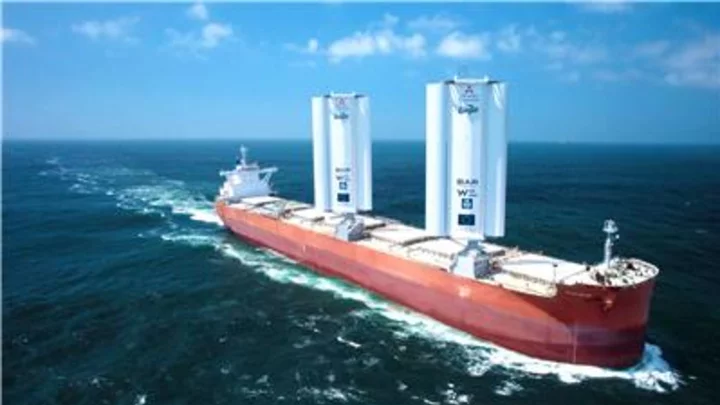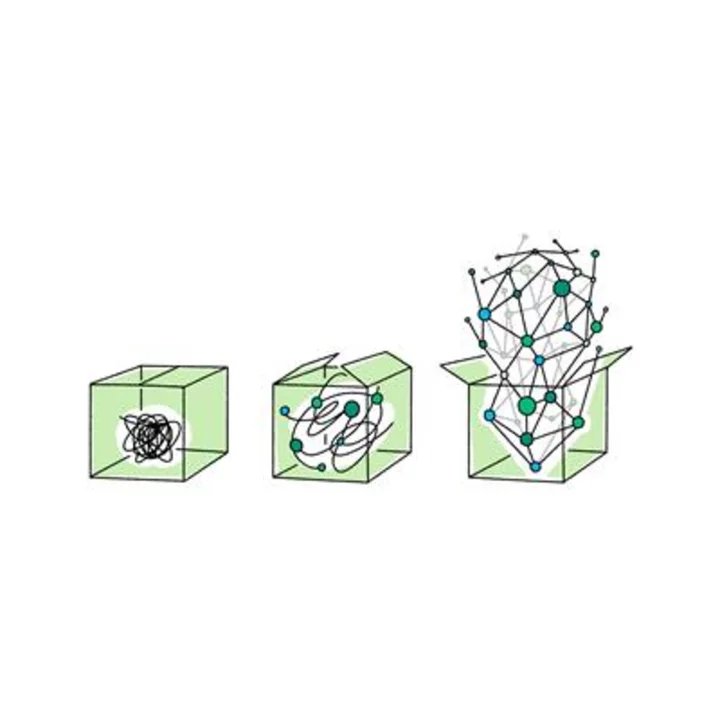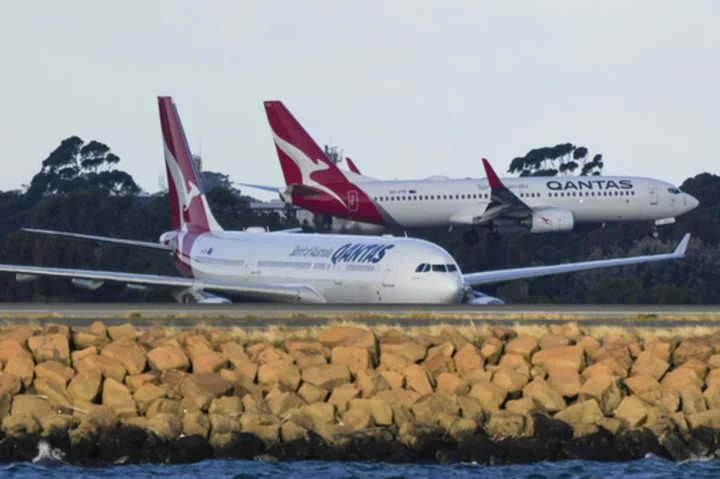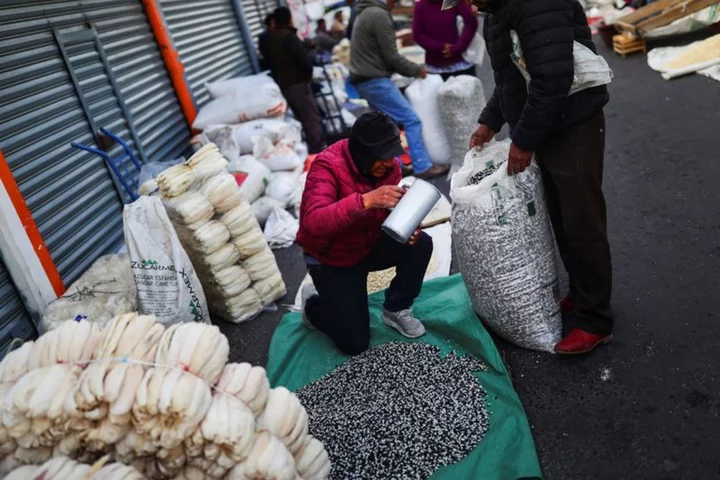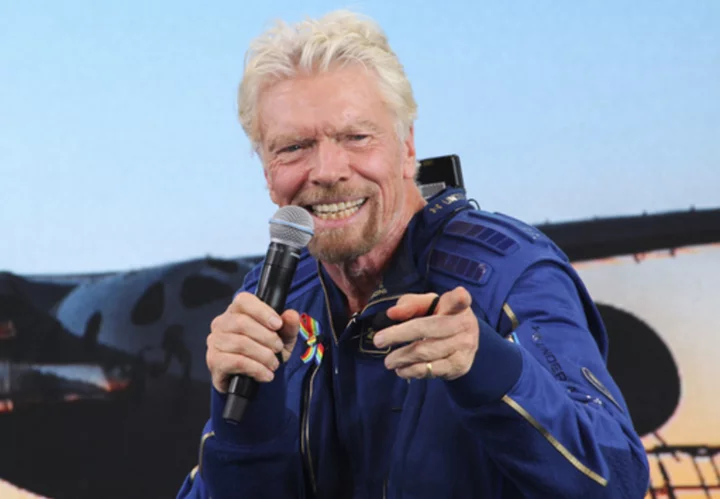Group of Seven finance chiefs put more aid on the table for Ukraine, set up a new supply chain initiative and vowed to fill regulatory gaps in the banking sector in a show of unity on global geo-economic issues ahead of next week’s summit in Hiroshima.
“We call for an immediate end of Russia’s illegal war against Ukraine, which would clear one of the biggest uncertainties over the global economic outlook,” they said in a statement following their gathering in Niigata, Japan.
Aid for Ukraine through early 2024 was nudged up to $44 billion in a move that enabled the International Monetary Fund to approve $15.6 billion of support over four years, according to the 14-page statement.
The leaders also flagged the need to stay “agile and flexible” on economic policy amid heightened uncertainties for the global economy.
Central banks “will ensure inflation expectations remain well anchored and will clearly communicate policy stances to help limit negative cross-country spillovers,” the communique added.
The finance ministers and central bank governors from the US, UK, France, Germany, Italy, Canada and Japan had little trouble agreeing on a wide range of topics from banking sector woes to debt restructuring in a lengthy communique that had largely been written ahead of the meeting, according to people familiar with the matter.
Still, the US’s difficulties in avoiding a federal government default cast a shadow over the meeting, deflecting attention away from the key issues the G-7 targeted.
Treasury Secretary Janet Yellen said Friday in a Bloomberg television interview on the sidelines of the gathering that the federal government will have to renege on some payments if Congress doesn’t raise the debt limit.
In a Saturday interview, Yellen said she expects to update Congress within the next two weeks on how close the federal government is to defaulting on its financial obligations.
Despite the distraction of the US debt-ceiling debate, the host nation’s finance minister, Shunichi Suzuki, described the meeting’s reaffirmation of unity as a major result that would enable it to better respond to global issues.
“This paves the way for the leader’s meeting in Hiroshima,” he said after the release of the communique.
The statement offered some support for the US drive to reduce supply-chain dependence on China while also reaching out to the Global South to show the group of rich nations can take concrete action to their benefit while the G-20 struggles with divided opinion.
Officials from emerging economies like India, Brazil and Indonesia were present at the talks. While it’s not unusual for non-member countries to attend G-7 leaders’ summits, this is the first time since 2009 that invitations have been extended to financial chiefs.
Financial Stability
The need to ensure global financial stability was a prominent theme following the collapse of Silicon Valley Bank and First Republic Bank and the takeover of Credit Suisse. While the impact on G-7 nations’ economies and financial systems has been limited “it is not a time for complacency,” German central bank chief Joachim Nagel said in an interview during the meetings.
The world’s top economic policymakers said they would closely monitor developments in the banking sector and “stand ready to take appropriate actions” to maintain financial stability. The financial system remains resilient and policymakers will work to “address data, supervisory, and regulatory gaps” in the banking world.
The finance ministers and central bank governors also said they would address vulnerabilities in non-bank financial intermediation and tackle liquidity issues in open-ended funds.
Supply Chains
Trade disruptions were also high on the list of concerns at the gathering, with implicit regard to China. Finance chiefs proposed a new partnership that’ll be open to other nations, as previously reported by Bloomberg News.
They aim to launch the partnership for Resilient and Inclusive Supply-chain Enhancement, or RISE, by the end of this year at the latest, the communique showed.
That indicates growing concerns among the G-7 over China, given its role in supplying and manufacturing for the global economy. While the US is pushing to reduce reliance on China, some European countries took a more nuanced approach.
UK Chancellor of the Exchequer Jeremy Hunt talked of de-risking rather decoupling from China.
“No-one is saying we shouldn’t be trading with China. Everyone is saying that in certain specific areas, not just semi-conductors, we need to avoid dependency, we need to diversify our supply chains.”
The finance chiefs also pledged to speed up climate action efforts and to achieve both 2030 emission reduction targets and net zero greenhouse gas emissions by 2050.
They reaffirmed “the potential of high integrity carbon markets and carbon pricing to foster cost-efficient reductions in emission levels, drive innovation and enable a transformation to net zero, through the optimal use of a range of policy levers to price carbon.”
Global South
To build consensus beyond the G-7, finance chiefs were careful to include other nations in the conversation with a session dedicated to pledging more support to lower and middle-income countries and helping them secure resources from IMF facilities.
“To widen to other countries that share our goals is important because problems need to be worked out together, by everyone,” said Bank of Italy Governor Ignazio Visco.
The communique named Zambia, Ethiopia and Ghana as countries that have recently made or are expected to see some progress under the G-20’s so-called Common Framework.
The joint statement gave a nod to recent developments on the Sri Lanka deal led by Japan, France and India. The three chair nations hosted a virtual session of the inaugural creditors’ meeting on Tuesday with 26 countries participating. China, which is Sri Lanka’s biggest bilateral lender and has been at odds with other creditors, attended as an observer.
Still, Hunt suggested the G-7 had to do some “soul searching” over why advanced democracies have struggled to build a global coalition after the invasion of Ukraine.
“Amongst advanced democracies there was unity of purpose. That is what we need when it comes to economic coercion,” Hunt said. “There has been quite a big change. I think people do understand the need to get there.”
--With assistance from Yuko Takeo, Christopher Condon, Joe Mayes and Erica Yokoyama.
(Adds comments from finance ministers of Japan and the UK)
Author: Alessandra Migliaccio, Kamil Kowalcze and Toru Fujioka

